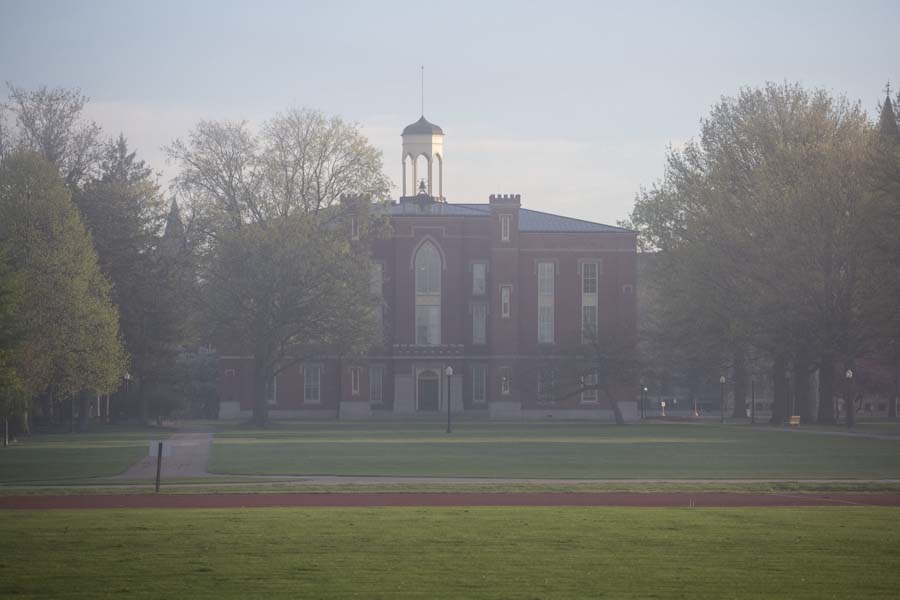Knox Stories
Knox Summer Scholars: A Summer of Research, Growth, and Community
Knox Summer Scholars gives students the chance to pursue in-depth projects with faculty mentors and motivated peers.
Venture Boldly

Office of Communications
2 East South Street
Galesburg, IL 61401


After hearing Tyrone Hayes' EquiKnox lecture on frogs, pesticides, and the agricultural business, Knox College students said they were inspired by Hayes, a biologist who has combined significant scientific research and advocacy.
Jessica Robinson '16 said she appreciates the "social aspect" of Hayes' work, including his willingness to talk about how it's changed his life and how it affects people of color around the world.
Robinson, who is heading to graduate school at the University of Michigan, is especially interested in organic farming and reduced use of pesticides and fertilizers. She hopes to "use science as a means to communicate with a greater audience than just academia, but (also) with people who are being affected by these decisions."
Hayes, a professor at the University of California at Berkeley, presented his EquiKnox lecture, "From Silent Spring to Silent Night," on April 20. He was invited to campus by Knox Advocates for Recycling and Environmental Sustainability, the student-run organization known as KARES.
"The reason we wanted to bring Dr. Hayes, specifically, is because he covers a very wide variety of topics," said KARES Co-President Sophia Spooner '16. "Coming to see him really gives you a sense of someone that is doing something that I think a lot of students at Knox really want to do—(students) that are very science- and advocacy-focused."
"Hearing someone that has succeeded doing these things is really fuel to a lot of Knox students' passions," Spooner added.
The EquiKnox lecture series features renowned speakers on sustainability each fall and spring.
In his lecture, Hayes explained that as a boy, he spent a lot of time exploring for frogs. He became interested in frogs' behavior and how they were affected by the environment.
Years later, Hayes recalled, he and colleagues were asked to do research on atrazine, a weed-killer. The research found that exposure to the herbicide could affect frogs' fertility and cause male frogs to be "demasculinized"—and in some instances, to turn into females.
One of the effects of the research, he said, is that Syngenta, an agribusiness giant that manufactures atrazine, has attempted to discredit him and his work. That conflict has been described in articles in The New Yorker and Mother Jones magazines.
Hayes said atrazine and other agriculture-related chemicals pose potential health hazards to humans, too. "This is not just a frog issue," he said.
Hayes, who described himself as an advocate, said he favors tighter regulation of atrazine and other chemicals, as well as better labeling of genetically modified foods. He also urged people to buy food locally and to grow their own food if possible.
Published on May 31, 2016